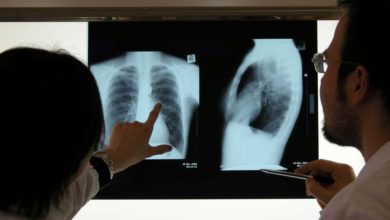Many medical students are excited to finally apply to residency programs in the specialty they’ve chosen. The residency application process can feel tense, but since you’ve already made it through the medical school application process, it might just feel familiar! I’m here to guide you step by step, component by component.
You’ve worked very hard for years to prepare for this moment. Now it’s time to put all that work into one centralized application, the Electronic Residency Application Service (ERAS), which is administered by the Association of American Medical Colleges (AAMC).
There are many components of your ERAS application, such as letters of recommendation, personal statement, and CV.
Every other year, the National Residency Matching Program (NRMP) surveys healthcare program directors across the nation to find out what factors of the ERAS application are weighted most heavily when considering. The most recent survey was conducted in 2022 and is available here.
Let’s examine some of the facets of your ERAS application judged to be most crucial by residency program directors and discuss how you can use each one to make yourself as attractive an applicant as possible.
Read Next: Med School Residency Tips
Personal Information
This simple ERAS section asks you to provide the following information:
- Basic personal info, such as names, gender, and date of birth
- Mailing address, phone number, and email
- Work authorization information
- Couples matching status
- Your exam transcript IDs (either USMLE ID and/or NBOME ID)
- BLS, ACLS, PALS certifications & honors society membership
There are benefits and drawbacks to couples matching. If you and your partner are both good matches for the residency program or for different programs in the same area, it may bolster your chances. However, if one partner is not the match they’re looking for, it may drag the other’s chances down.
Read More: Most Important Factors in Residency Matching
Biographical Information
This section asks for more basic personal information, including Geographic Preferences information, which is reported by program directors to be one of the most important factors for match outcomes. In this section, you’ll be asked to report:
- The languages you speak and proficiency levels for each
- Any military service obligations
- Geographic and Setting Preferences
What are Geographic and Setting Preferences? In this section, you can select up to three US Census divisions and indicate your preference or lack of preference for each (Geographic Preferences). You can also elect to share your preference or lack of preference for urban, suburban, and rural settings (Setting Preferences).
Choose your Geographic and Setting Preferences carefully. This information can have a big impact on your match outcome. According to the AAMC, 86% of program directors use preference information as a screening tool prior to holistic review. Further, 94% of PDs use preference info when deciding whom to interview.
Should I just say I have no Geographic Preferences? You may select “I do not have a division preference” on your application, but you should only do so if that is your truthful response. Sharing your Geographic Preferences can be a strategic move – according to the AAMC, you actually have a higher likelihood of getting an interview if your geographic preference matches the program location than if you marked no preference for that region.
Personal Statement
You are required to write a personal statement, much like you did when applying to medical school.
There are differences and similarities between your AMCAS and ERAS personal statements. While there are no hard and fast “rules” for your personal statement, you generally want to demonstrate the following:
- That you understand the specialty you’re applying to
- That you have the attributes necessary to succeed in the field(s) you’ve chosen
- That you will be an asset to the residency program in multiple ways (leadership skills, academic performance, etc.)
Articulating your comprehension and character in a genuine and compelling manner doesn’t have to be hard — effective personal statements range from simple to highly creative.
Proofread your statement thoroughly. Also be sure to take advantage of the resources around you. Many medical schools have services to support applicants writing their personal statement. See if your school offers appointments for a professional review of your application materials.
If you’re applying to a highly competitive specialty, or if you have red flags or obstacles that could hinder your match chances, consider getting professional help with your personal statement and application.
Craft a successful residency application with one-on-one Residency Match Advising from MedSchoolCoach. Team up with a physician expert and professional writer to ensure that you match into your preferred specialty this cycle.
Read Next: Writing the Perfect Residency Personal Statement
Letters of Recommendation
You must provide high-quality, honest letters of recommendation to be written on your behalf (not by you). In general, most residency programs want these letters to be from clinical faculty familiar with your work. Review the websites of residencies you’re considering applying to well in advance to see if they have any specific requirements.
Give your letter writers sufficient notice of any requirements and deadlines.
Most specialties expect you to submit at least one letter, preferably two, from a doctor in that specific field. The other letters can come from different departments. Here are some other take-home points concerning LORs:
- Research what is required by your program of choice. An advisor familiar with your field of interest can be a helpful resource.
- Ask well in advance to allow your letter writers plenty of time.
- Choose wisely. ERAS lets you store an unlimited number of letters, but you can only send a maximum of 4 to any individual program.
Curriculum Vitae (CV)
Your residency application also features sections on Education, Experiences, Licensure, and Publications — all of this info auto-populates into the CV. When filling out these sections, be as positive as possible without being dishonest or arrogant.
New to the 2024 MyERAS application, you can only list 10 experiences. Now, you can also choose your 3 “Most Meaningful” experiences. Experiences may include:
- Education or training, including clerkships and away rotations
- Military service
- Membership in societies or associations
- Research
- Teaching experiences
- Volunteer, service, or advocacy experience
- Paid work, including both clinical and nonclinical jobs
- Other extracurriculars, including clubs, hobbies, and sports
Pick experiences you’re truly passionate about, not something you think will check an imaginary box.
Licensure includes your state medical license, board certification, and DEA registration info.
Publications is where you can humbly brag about getting research published. This includes journal articles/abstracts, book chapters, poster presentations, oral presentations, and other articles.
Most residency training programs would prefer you to be meaningfully involved in something you’re really passionate about, as opposed to thinly spreading yourself across many superficial activities.
Step Scores
You know this, I know this — it’s no surprise that your test scores are paramount. Your COMLEX Level 2 (osteopathic residents) or USMLE Step 2 (allopathic residents) scores tell residency directors your likelihood of passing Level 3 or Step 3 exams and any specialty-specific board exams.
Step 1 is now pass/fail, which means that Step 2 CK is the only numerical score that residencies can use to evaluate your application.
Note that the Step 2 CS (clinical skills) test was permanently discontinued in 2021.
Read More: How to Effectively Use Notecards to Study for Step 1
Once you take the tests and scores are released, step scores are automatically available through the ERAS system. However, you do have to authorize the release of your USMLE and/or COMLEX transcript and assign it to your designated programs on the “Additional Documents” page. This ensures that the programs you apply to receive your scores.
Medical School Transcripts
Your Dean’s Office is responsible for uploading your transcript when it is available.
By the time you’re filling out your residency application, there’s not much you can do about your transcripts. However, if you’re reading this early, remember that your grades and clerkship scores are a major part of how residency programs evaluate your eligibility.
Medical Student Performance Evaluation (MSPE)
The MSPE, or the Dean’s Letter, is not a letter of recommendation. It’s a summary of your time in medical school.
To provide a broader view of your medical school performance, the MSPE includes the following information about you:
- Three noteworthy characteristics (these are chosen by you)
- Academic history, including info about your matriculation and graduation dates, any leaves of absence, any dual degree programs, any course remediations, and any adverse actions taken against you
- Academic progress, which includes grades and performance summaries from courses and clerkships
- A general summary of your med school performance and readiness for residency
Your Dean’s Office is responsible for preparing your MSPE and uploading it into ERAS. However, you will likely have to submit a CV and info form to your Dean’s Office to help them prepare your MSPE. Be on the lookout for MSPE-related instructions from your school in the spring of your fourth year.
Professional Photo (Optional)
An optional headshot can be uploaded into ERAS. It is recommended that you include a professional photo of yourself smiling to help make your application more memorable and humanize it with a real person’s face.
The photo file must meet the following requirements:
- File type: JPEG/JPG or PNG
- Maximum dimensions: 2.5 in x 3.5 in
- Maximum resolution: 150 dpi
- Maximum file size: 150 KB
Pro tip: Use CloudConvert to compress your image file if it’s too large — 150 KB doesn’t give you much room to work with. It’s fast and free, and you don’t have to sign up.
International medical graduates (IMGs) cannot upload their own photos. The Educational Commission for Foreign Medical Graduates (ECFMG) is responsible for uploading the IMG’s photo into the ERAS system.
FAQs
➕ What is in a residency application?
The components of a residency application are as follows:
- Personal and biographical information
- Curriculum vitae (CV), which includes the Education, Experience, Licensure, and Publications sections
- Personal statement
- Letters of recommendation
- USMLE/COMLEX scores
- Medical school transcripts
- Dean’s letter (MSPE)
- Photo (optional)
➕ How do I know what residency to apply to?
There are many ways to research residencies and fellowships that you may want to apply to. I have found AMA-FREIDA helpful to both residency and fellowship applicants. The American Medical Association Fellowship and Residency Electronic Interactive Database Access System (AMA-FREIDA) is a database of all AMA residencies.
➕ When should I apply for residency?
The residency application process can take as long as a year. Start filling out your application as soon as ERAS is available, typically in June. Submissions may begin typically in September.
Let Us Help You Craft an Exceptional ERAS Application
Although it may be statistically harder to get into residencies than in the past, it’s simple for you to increase your odds of getting accepted. Just ask for professional help with your ERAS application and interview.
This article contains general tips, but there are several exceptions I couldn’t cover. Maybe you’re applying to an extremely competitive specialty that requires away rotations, intensive research, and a specific application strategy. Maybe you faced an institutional action in medical school. Or maybe you’re an IMG hoping to match into a US residency. Whatever your obstacle, getting one-on-one ERAS support will maximize your chances of reaching your goals.
MedSchoolCoach can pair you up with an expert physician who knows the application process inside and out and can help develop a strategy for Match Day success. Also, you’ll get access to a professional writer who can help make your ERAS application worthy of interview invites.
Here’s what one client, Heather, had to say about our services:
“I am so grateful for the support from MedSchoolCoach during my application cycle for general surgery residency… After getting my step 2 score back, I was almost certain I wouldn’t match. I then lost my military placement after outrageous changes to my obligation on the last day to sign. I really had felt all hope was lost.
“Lucky for me, I still had my amazing MedSchoolCoach team on my side. Dr. Ruby was so professional, always prompt for meetings. He helped me go through my long list of programs that I planned to apply to and helped me decide on the final list to submit to eras… After interviews, Dr. Ruby was very influential in guiding me through my rankings and really helped me navigate the process seamlessly.
“With much credit to my MedSchoolCoach team, I matched at my number one general surgery categorical position at George Washington University!!! If you are on the fence about this program, I hope you take my story into consideration. I am almost certain that the outcomes would not have been as fruitful if I hadn’t made the investment with MedSchoolCoach… Thank you all so so much!!”
Ready to write your own residency success story? Get one-on-one application support from an expert physician and professional writer to maximize your chance of Match Day success!



